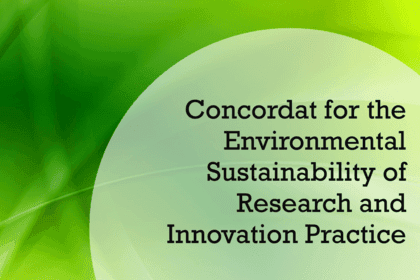Different types of research will affect the environment in different ways. Wet laboratories tend to be energy hungry and produce large amounts of plastic and toxic waste. Public health and the social sciences can have large footprints from fieldwork related travel. In big data driven health research, lots of energy is used to store data and train models.
We expect researchers to:
- design their research using the most sustainable approach they can access and to tell us how they have done this in their grant application. They should include the relevant allowable direct costs to enable this.
- consider the environmental sustainability of their project-related purchases, even if this means choosing an item with a higher upfront cost. All costs must be justified as part of the grant application.
146 tools and initiatives that researchers can use to ensure their research is undertaken sustainably were identified as part of a Wellcome commissioned report by RAND Europe, ‘advancing environmentally sustainable health research’. As part of this report, guidelines were developed on how to conduct some kinds of health research sustainably. Researchers should reference these where relevant.
Examples include:
Researchers across all fields should demonstrate how they will reduce the emissions and natural resources used in their research. We do not expect researchers to be environmental sustainability experts, but they should seek advice from the technical experts available to them, including laboratory technicians. Some of the practices listed on this page apply most clearly to laboratory research but some are transferrable to all research settings.
The examples given are not intended to be exhaustive.
Reduce, reuse and recycle resources, equipment, materials and consumables
To reduce energy consumption researchers should:
- Turn off equipment, including laminar flow cabinets when not in use (for example overnight).
- Close fume hoods when not in use.
- Set ultralow freezers no lower than -70 degrees Celsius. If a warmer temperature is as effective that setting should be used. Take measures to limit the time freezer doors are open, for example effective labelling of tray contents.
To reuse research equipment, materials and consumables researchers should:
- Use second hand or reconditioned equipment where available, viable and more sustainable than purchasing new.
- Share equipment with other researchers/organisations where available and viable, rather than purchasing one of everything each.
- Check internal inventories/asset registries at host organisations for existing equipment, materials and consumables before purchasing new items. We won’t pay for new items where existing ones can be used instead.
- Participate in organisation initiatives to pass items on to others when they are no longer needed but still have useful life left, for example through the UniGreenScheme where available.
- Use maintenance contracts so items can be repaired rather than recycled as much as possible.
- Avoid single-use plastics where reusable alternatives are available and viable. Use plastic consumables with the minimum size required.
To recycle waste products researchers should:
- Use institutional recycling facilities, particularly for clean packaging, and use general or hazardous waste bins only when unavoidable.
- Use materials, consumables and equipment that are made from recycled materials and/or can be recycled at the end of their useful life where viable.
Travel
Wellcome will only fund essential travel related to our funded research.
All travel requested in grant applications must be justified.
To reduce the emissions from Wellcome-funded travel, researchers should:
- Minimise their travel and that of their staff, collaborators and all grant participants (for example, clinical research participants, focus group attendees, advisory boards etc) when designing and undertaking their project.
- Use alternatives (such as video conferencing, hybrid meetings and attending conferences virtually) where possible.
- Leverage existing local skills for fieldwork or if necessary, upskill others who are already located in the field rather than to travel to site themselves.
- Choose modes and class of transport that have a lower carbon impact where travel is essential (this includes taking the train instead of flying and travelling economy class when flying is unavoidable).
- This includes taking the train for journeys of up to 10 hours (total travel time including connections). Exceptions may include lack of availability, safety, or visa/permit reasons, or in exceptional circumstances such as a disability, long-term health condition or caring requirements necessitating faster travel.
- If flying is unavoidable, using economy class as a default. Wellcome does not fund business class flights.
- Mitigate the remaining carbon emissions of all journeys using accredited carbon credits or use an alternative approach where their organisation has received Wellcome’s approval for this.
The air travel justification tool found in the Sustainability Exchange Travel Better package (provided by Sustainability Exchange) provides a decision tree to help establish if flying to a conference/meeting is justified. Researchers should use this or a similar tool to help with such decisions. While carbon credits are not a long-term solution to emissions Wellcome accepts its use as a way of mitigating remaining travel emissions once all other efforts to reduce them have been taken.
Research outputs
To manage research outputs and reduce wasted resources from duplicated work, researchers should:
Measure and monitor progress
To target efforts and ensure continuous improvements in sustainable practices:
- Laboratories should achieve the minimum level of accreditation offered by LEAF, My Green Lab or equivalent by the end of 2025.
- Desk, field, clinical, and other researchers: should use a tool appropriate to their setting to assess the environmental impact of their work and to track their efforts to reduce it. A list of currently available tools can be found in the ‘table of initiatives’ which was compiled as part of the RAND Research Sustainability report.

